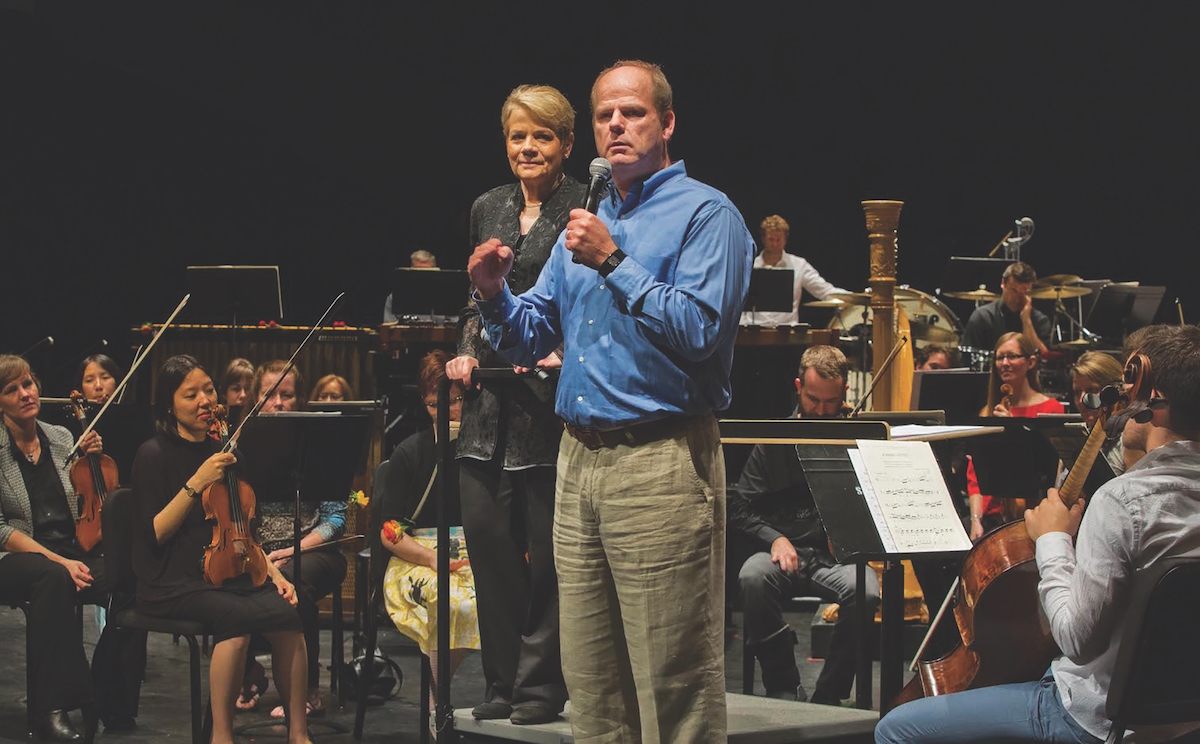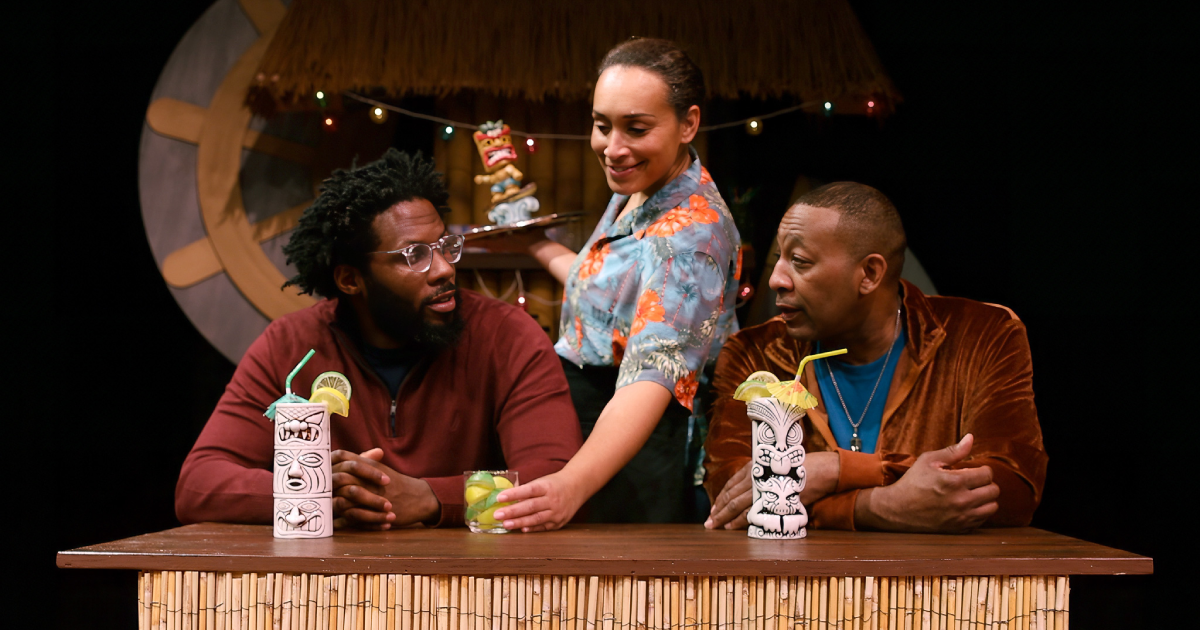A Q&A with Alexander Miller
It depends on who you ask, but Gustave Flaubert’s literary masterpiece “Madame Bovary” is about either a hapless dreamer or an adulterous drama queen.
Alexander Miller, the Grand Rapids Symphony’s assistant principal oboist and unofficial composer-in-residence, has his own interpretation. Miller wrote his “Madame Bovary” concerto for long-time friend and principal cellist Alicia Eppinga in 2013. The Holland Symphony Orchestra will present the piece as part of its Oct. 29 program featuring Eppinga.
Revue talked with Miller about the universal themes that spark his creative process and the sequence of opportunities that led to the work’s creation.
You never pursued formal training as a composer. How did you build your career in composition?
I’d love to say that I had a bigger master plan, but it really came from taking advantage of every opportunity and delivering a great piece every time. I started composing in high school, but it wasn’t until my last two years studying at Juilliard that I thought I might stack up against ‘real composers.’
When did you take the leap and start composing professionally?
After I got my current job as assistant principal oboe with the Grand Rapids Symphony, I was talking with [Associate Conductor] John Varineau during a long bus ride to an out-of-town concert. He suggested that I write a piece for an upcoming series of high school concerts. The piece I ended up writing, “Karawitan,” was performed at 10 or so of our high school concerts. Catherine Comet, the GRS Music Director at the time, came up to me after one and said, ‘Ale, your piece was the best on the whole program. Well, except for the Beethoven.’ [Laughter] The opportunities kept coming after that.
Why a piece about “Madame Bovary?”
It was really a confluence of events that pulled the whole project together. When Alicia Eppinga was appointed principal cellist of the Grand Rapids Symphony, she wanted more than anything to premiere a brand new concerto. We started talking about the possibility of me writing it for her and, after the commission was negotiated with the Symphony, we got to work.
How did the character of Emma Bovary inspire you?
What got me thinking about Madame Bovary was a piece by Richard Strauss, “Don Quixote.” Listening to it, you really feel like you’re being told a story. That concept really intrigued me. I thought that if Don Quixote is the male impossible dreamer of literature, then Madame Bovary must be the female equivalent. She’s always yearning for more and has an insatiable appetite for passion. The theme that runs through that novel — the idea of always wanting more — is one that everyone can relate to.
Do you feel like there’s something about the sound of a cello that really fits the character of Madame Bovary?
Definitely. Any other instrument wouldn’t work quite as well. Alicia’s playing, too. She can play a single note and it already sounds like music. It has a yearning quality to it that is so natural and perfect for “Madame Bovary.”
As an oboist, what is it like writing a piece for an instrument that is not your own?
It’s hard! I did an awful lot of technical research for this piece. I had weekly meetings with Alicia where I would show her everything I had written. I even watched her finger positioning and made a mockup of a cello fingerboard so I could know what would feel natural to a cellist.
What are you working on now?
The Grand Rapids Symphony will perform a piece of mine, “Scherzo Crypto,” with JoAnn Falletta conducting next March. I just finished a piece inspired by mid-20th century detective fiction called “Dark Mirror” for the Western Brass Quintet. They’ll premiere and record it sometime this concert season. Right now, I’m working on a commission from the River Oaks Chamber Orchestra in Houston, an adventurous group that commissions a new piece for every one of their concerts. They’re chomping at the bit to see what the next new thing is going to be in music. As a composer, it’s freeing when you know you can push the envelope and it will be well received.
Classics II:
Virtuoso Cello
Oct. 29, 7:30 p.m.
Jack H. Miller Center for Musical Arts at Hope College, 221 Columbia Ave., Holland
$5-20
hollandsymphony.org, (616) 796-6780





